Bahraini resistance group Saraya al-Ashtar joins the fray against Israeli regime
By Julia Kassem
In a significant and perhaps game-changing regional development, a new member of the Axis of Resistance joined the battle against the Israeli occupation and its Western backers this week.
Hailing from the most unlikely of places, the island country of Bahrain, Saraya al-Ashtar entered into the fray more than 200 days into the Operation Al-Aqsa Storm that completely changed the regional dynamics and debunked the myth of Israeli military invincibility.
In a video statement on May 2, the Bahraini resistance group claimed responsibility for its first operation against the Israeli regime in solidarity with the oppressed people of Gaza.
“The Islamic Resistance in Bahrain targeted the depths of the Zionist entity”, the headquarters of the regime-affiliated Trucknet Company in the mostly hollowed-out port city of Umm al-Rashash (Eilat).
Evading Yemeni maritime targeting of Israeli-linked ships in regional waters, Trucknet is the company currently constructing the land-route alongside fellow “Abraham Accords” coalition supporters Egypt, and the UAE as well as Bahrain and the Israeli regime itself.
On May 4, just two days later, the Bahraini resistance movement claimed responsibility for another operation targeting a key Israeli military site in Eilat with a barrage of drones.
Saraya al-Ashtar thus joins other members of the Axis of Resistance, from Yemen to Iraq to Lebanon, in striking Zionist economic targets in Eilat in solidarity with the people and resistance of Palestine.
The Yemeni military and the Islamic Resistance in Iraq have vowed to continue inflicting blows on the illegitimate entity in Tel Aviv until the genocidal war on Gaza does not end.
However, the new resistance group has one striking difference from other groups – it hails from Bahrain, showcasing for the first time not only new offensive capabilities from the unified resistance but also unveiling the extent of its hidden presence from the most unlikely of locations.
Bahrain, under tight comprador control of the US-aligned al-Khalifa monarchy, functions as Washington’s naval base, housing its 5th fleet, the empire’s oldest naval presence in the region.
It was one of the only Persian Gulf nations to join the move to reinforce the American maritime coalition against the Yemeni military’s operations against Israel-linked ships in the Red Sea.
In first, Bahraini resistance group strikes Israeli target in Port of Eilathttps://t.co/G9TKS9DOJV
— Press TV 🔻 (@PressTV) May 3, 2024
Bahrain was also one of the first to join the US-brokered Abraham Accords, normalizing relations with the Israeli regime in 2020. The Al-Khalifa regime represents the most shameless of treachery to the Palestinian and sovereign Arab stances and causes, having celebrated Israel’s 75th “anniversary,” or, in other words, dancing on the graves of the Nakba victims.
With the Al-Khalifa regime’s participation in the pro-Israel coalition representing an utmost betrayal of the Palestinian cause, the arrival of Saraya al-Ashtar on the stage marks a new chapter in the transnational resistance movement against the Zionist occupation and Western imperialism.
This movement transcends borders and knows no internal limitations. Saraya al-Ashtar, whose operations were limited to Bahrain’s mainland previously, continued to send firm messages defying the orders of the country’s comprador leadership, their complicity in the genocide in Gaza, and their reinforcement of American and Israeli political and economic goals in the region.
Unlike other resistance groups, Saraya al-Ashtar rose from within a completely autocratic, US-controlled Gulf sheikhdom, operating despite heavy persecution of domestic anti-imperialist opposition.
While the April 27 attack on Trucknet by the Bahrani resistance group took place in Iraq or possibly Syria, the emergence of its operations represents a breakthrough in the Axis of Resistance’s operational and regional expansion, hailing from the most unlikely of places.
Despite the presence of Western hegemonic powers in Lebanon, Iraq, Yemen, and Palestine, the Lebanese resistance movement Hezbollah, the Islamic Resistance in Iraq, the Yemeni military, and the unified Palestinian resistance have been able to operate with autonomy and agency and have had a presence in governments and represented in large segments of their respective societies.
Saraya al-Ashtar, on the other hand, emerged in 2012 in the aftermath of the February 14, 2011 uprising, when the peaceful movement against the illegitimate Al-Khalifa regime was violently and brutally suppressed.
Bahraini resistance group claims attack on Israeli porthttps://t.co/c1oDd2PEWt
— Press TV 🔻 (@PressTV) May 4, 2024
It’s no strange that Bahraini rulers designated the group as a terrorist organization in 2014 and the US also sanctioned it in March of this year. So the resistance group has been mostly limited in the scope of its operations, with its last operation coming in 2017.
In the video released on May 2, the group applied their political goals and military actions, which have thus far been limited to their domestic sphere, to their full extent, surprising all and sundry.
In the context of Al-Aqsa Storm, the Bahrani group shares with the Palestinian resistance, in struggle as well as in vision, a demonstrated commitment to liberating the region from US and Israeli occupation.
In this vein, Saraya al-Ashtar’s operation is a signal to them that no Arab nation would tolerate the presence of American or Israeli presence or destabilizing actions in the region.
This should spell out a clear threat to Israel that, despite the help from so-called “leaders,” it faces threats from all around, including Jordan, where Kata’ib Hezbollah of Iraq has vowed to extend its support to over 12,000 fighters of the Mujahideen of the Islamic Resistance in Jordan.
The timing of the May 2 video by the Bahraini resistance is also important as it comes amid truce talks between Hamas and the Israeli regime in Cairo and the likelihood of the Israeli invasion of Rafah.
The Axis of Resistance is ready to unleash new surprises from unknown directions, with its multi-regional ability to accelerate the Zionist entity’s collapse. All options are on the table.
Julia Kassem is a Beirut-based writer and commentator, whose work appears in PressTV, Al-Akhbar, and Al-Mayadeen English. She also appears on Press TV's Expose show.
(The views expressed in this article do not necessarily reflect those of Press TV.)
VIDEO | Spain must break relations with Israel, protesters chant in Madrid
VIDEO | Israeli divisions over Gaza
UN chief renews call for two-state solution, calls Gaza war ‘open wound’
VIDEO | London protests: Tens of thousands reiterate calls for ceasefire in Gaza
Iran clinches 2024 Asian Taekwondo Championships in Vietnam
VIDEO | Press TV's news headlines
VIDEO | Pro-Palestinian protest at Penn leads to multiple arrests
VIDEO | Blockout 2024: targeting celebrities


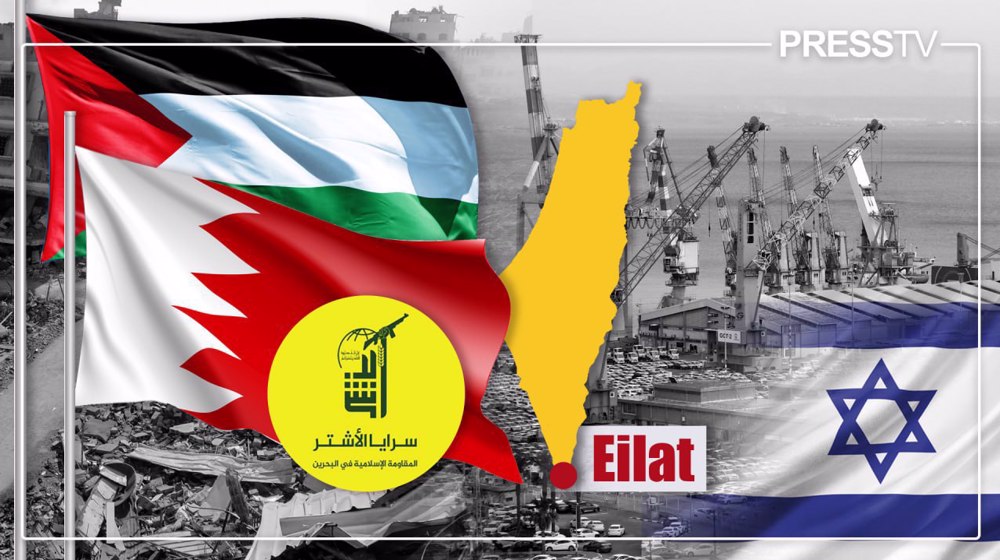


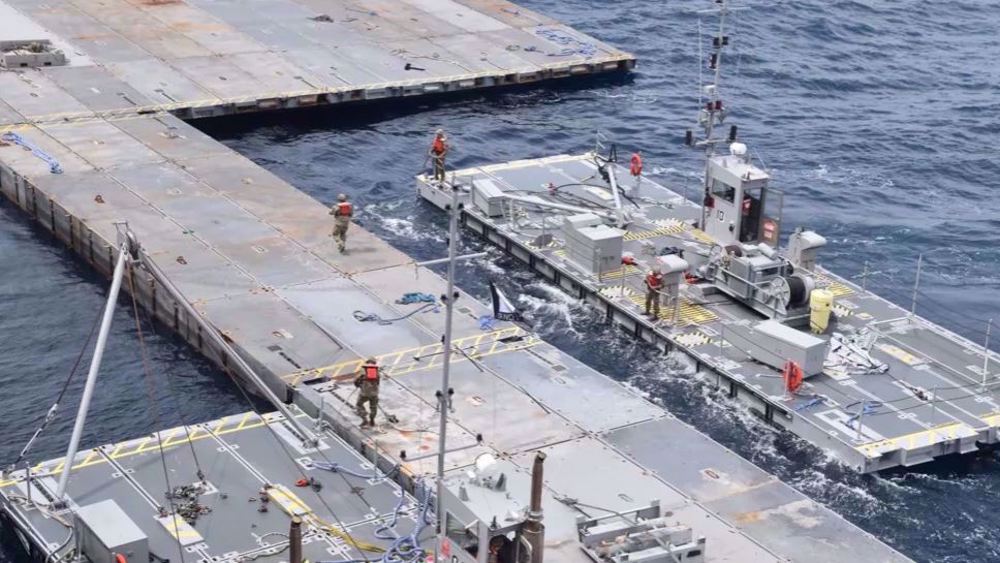



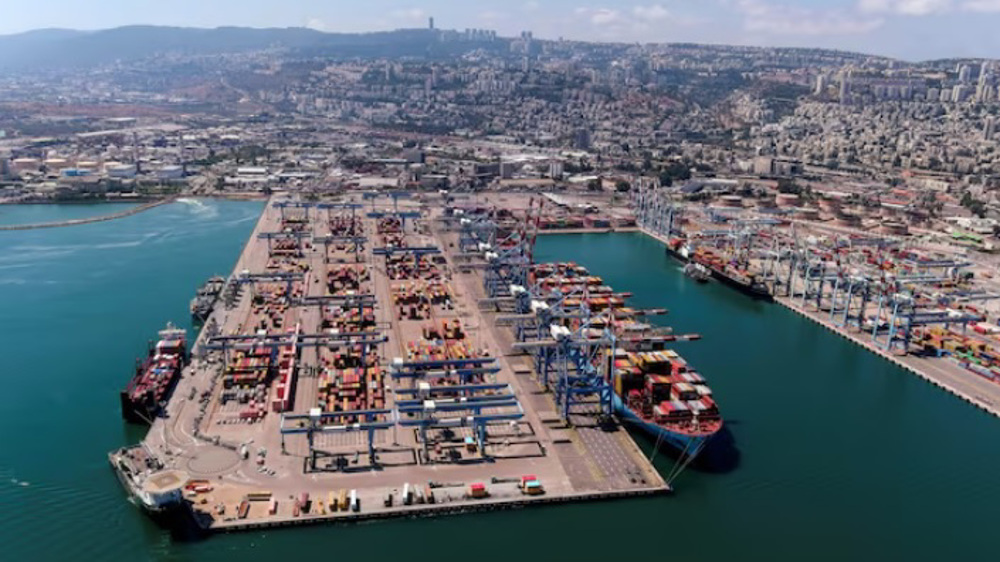


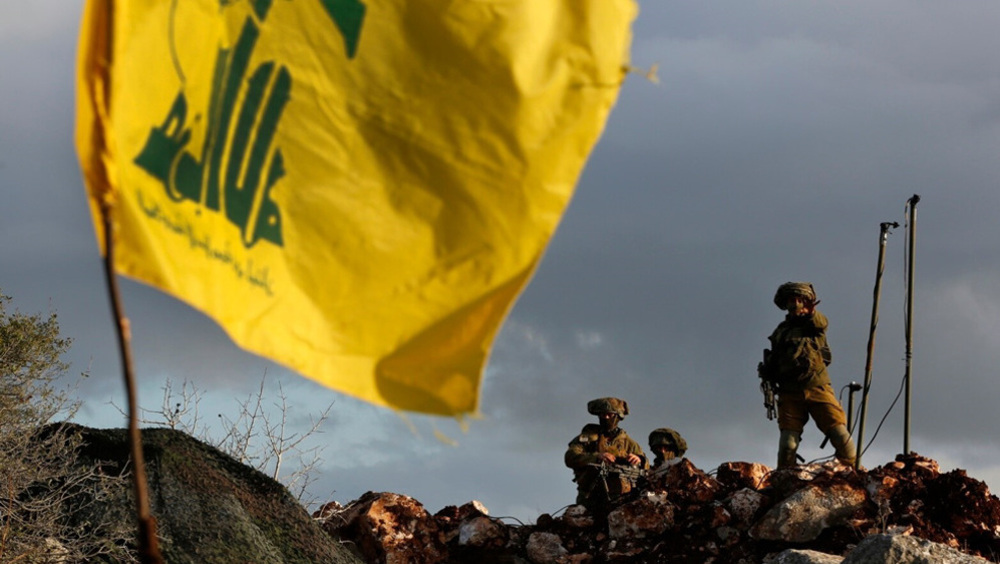
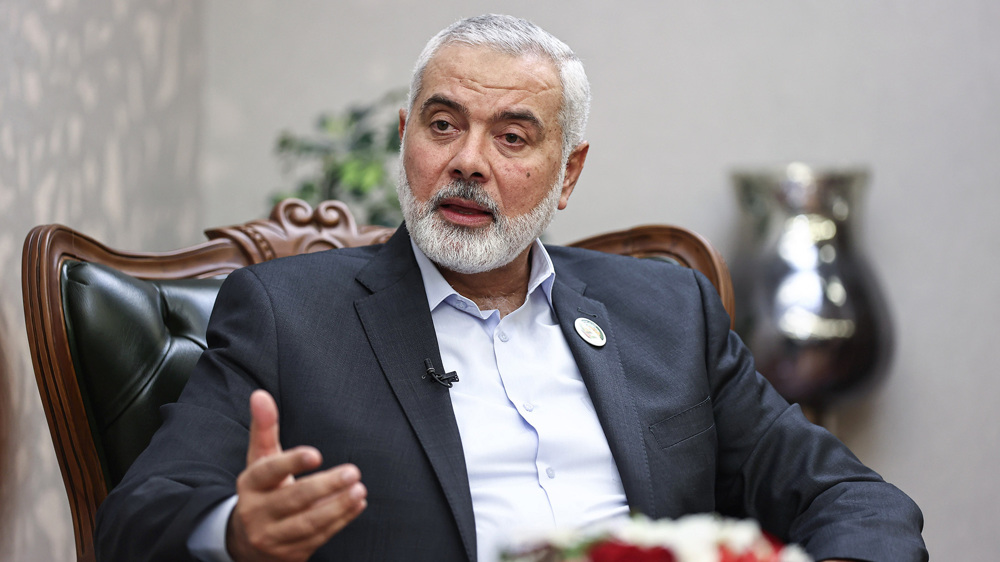

 This makes it easy to access the Press TV website
This makes it easy to access the Press TV website